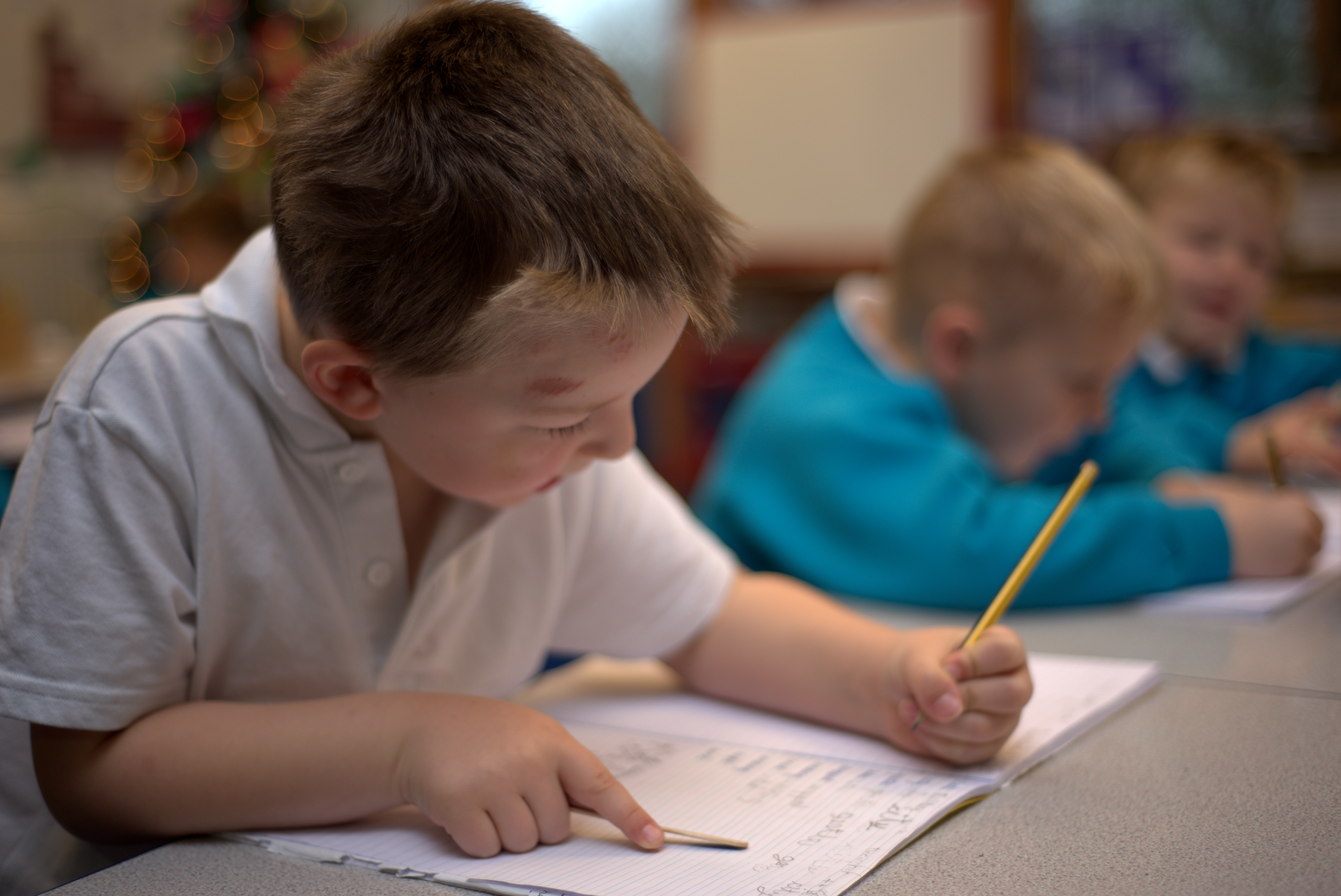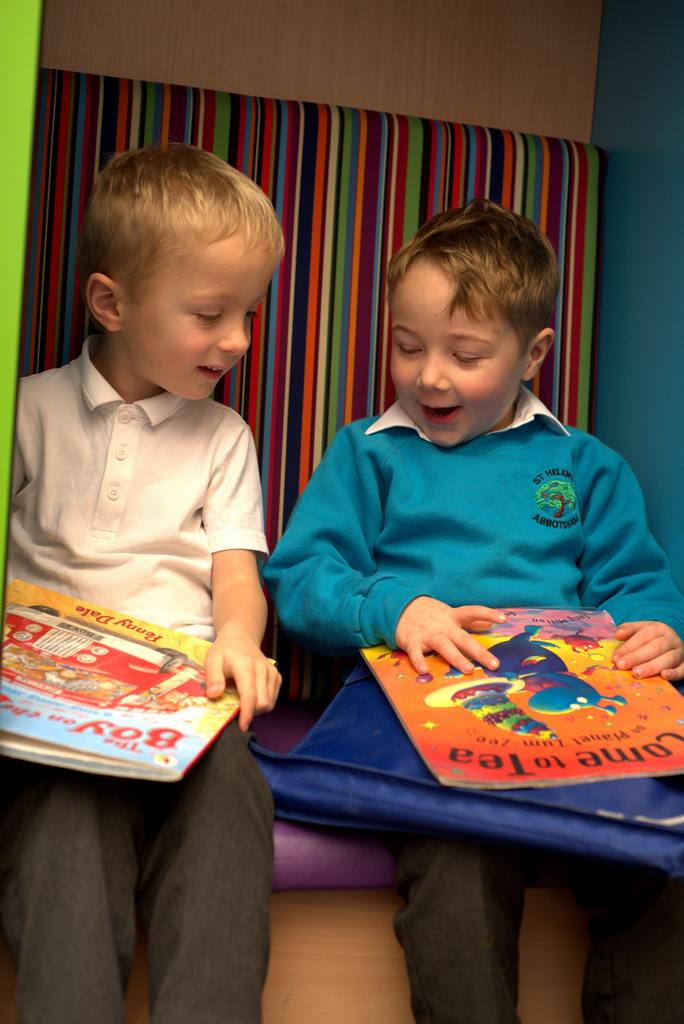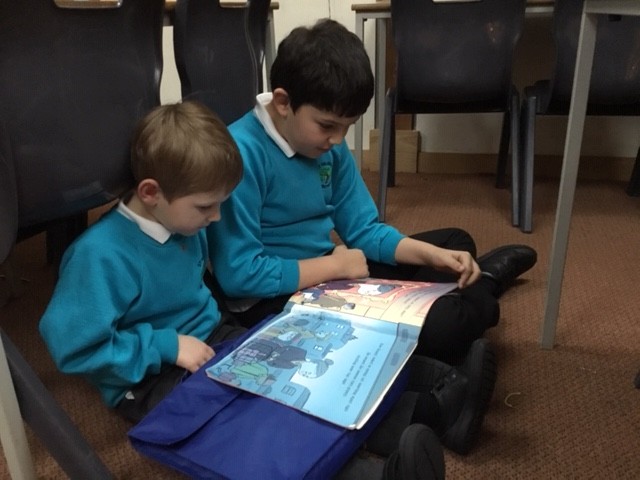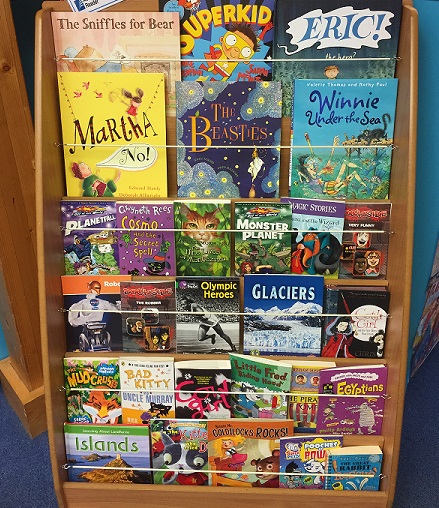Intent
At St Helen’s our priority is to create the very best communicators, readers, writers and thinkers. We aim for children to enjoy reading, to be able to express themselves articulately and to develop a love of writing. We challenge our students to think, act and speak like those working in the field would: to read like writers, to write like readers and to speak like orators. Our aim is to ensure that every child becomes primary literate and leaves St.Helen’s as confident readers, writers and speakers. We know that children will enter our school at different starting points, therefore progress is measured in line with these starting points. We will ensure that every child can celebrate success and no child is left behind.



Implementation
St Helen’s has a rigorous and well organised English curriculum that complements our school’s curriculum and vision. We provide purposeful opportunities for reading, writing and discussion linked to our cross-curricular themes.
Writing is a crucial part of our curriculum at St Helen’s. We ensure that children have inspiring, diverse and vocabulary rich texts that encourage and develop a love of writing. We plan for outcomes through which they will be able to express their thoughts and ideas clearly and creatively. Writing tasks are specific and meaningful, often with real-life purposes and audiences in order to engage children and illustrate how their writing skills can be applied to real-life contexts.
Children start developing their spelling knowledge bank as soon as they arrive at St. Helen’s. Phonics lessons, which are taught in line with Letters and Sounds, using Bug Club Phonics, begin in Reception. Children receive discrete daily phonics sessions in Reception and Year 1. Additional sessions are put in place if a child is struggling with a particular sound. Starting in Year 2, we follow the Decision Spelling programme which is a dyslexia friendly approach to spelling that follows on naturally from phonics. This approach ensures that all learners have the opportunity to succeed in spelling.
Reading underpins all our learning at St. Helen’s. We ensure that all children are able to share their reading book with their teacher at least once a week, with opportunities to read again to other teaching or support staff throughout the week . In addition to individual reading, whole class reading skills are taught to develop their reading skills.
All children begin their reading journey with a phonically decodable book that is linked to the sound they are currently being taught. In addition to this, children are able to choose and enjoy a ‘reading for pleasure’ book alongside their reading book to share with family members. Teachers are responsible for ensuring that children have the appropriate reading book for their phonics progression. As children become confident fluent readers, secure in their phonic knowledge, they are able to progress onto the Accelerated Reader programme in Year 2. Accelerated Reader develops reading skills by challenging children to complete online comprehension style quizzes after they have finished reading their book. This enables teachers to set, monitor and review targets for each child and move them forward in their reading skills.
Impact
The impact on our children is clear: progress, sustained learning and transferable skills. Children leave St Helen’s confident in their English abilities having enjoyed a broad and varied English curriculum. With the implementation of reading, writing and spelling being well established and taught thoroughly throughout the school in a fully inclusive way. By the time they are in upper Key Stage 2, a range of writing genres are familiar to them and the teaching can focus on creativity, mastery, sustained writing and the manipulation of grammar and punctuation skills. In spelling, children are able to make increasingly accurate decisions when met with new vocabulary.
As all aspects of English are an integral part of the curriculum, cross-curricular writing standards have improved and skills taught in the English lesson are transferred into other subjects; this shows consolidation of skills and a deeper understanding of how and when to use specific grammar and punctuation for purpose and effect. We hope that as children move on from us to the next stage in their learning that their creativity, passion for English, and high aspirations travel with them and continue to grow and develop as they do.

